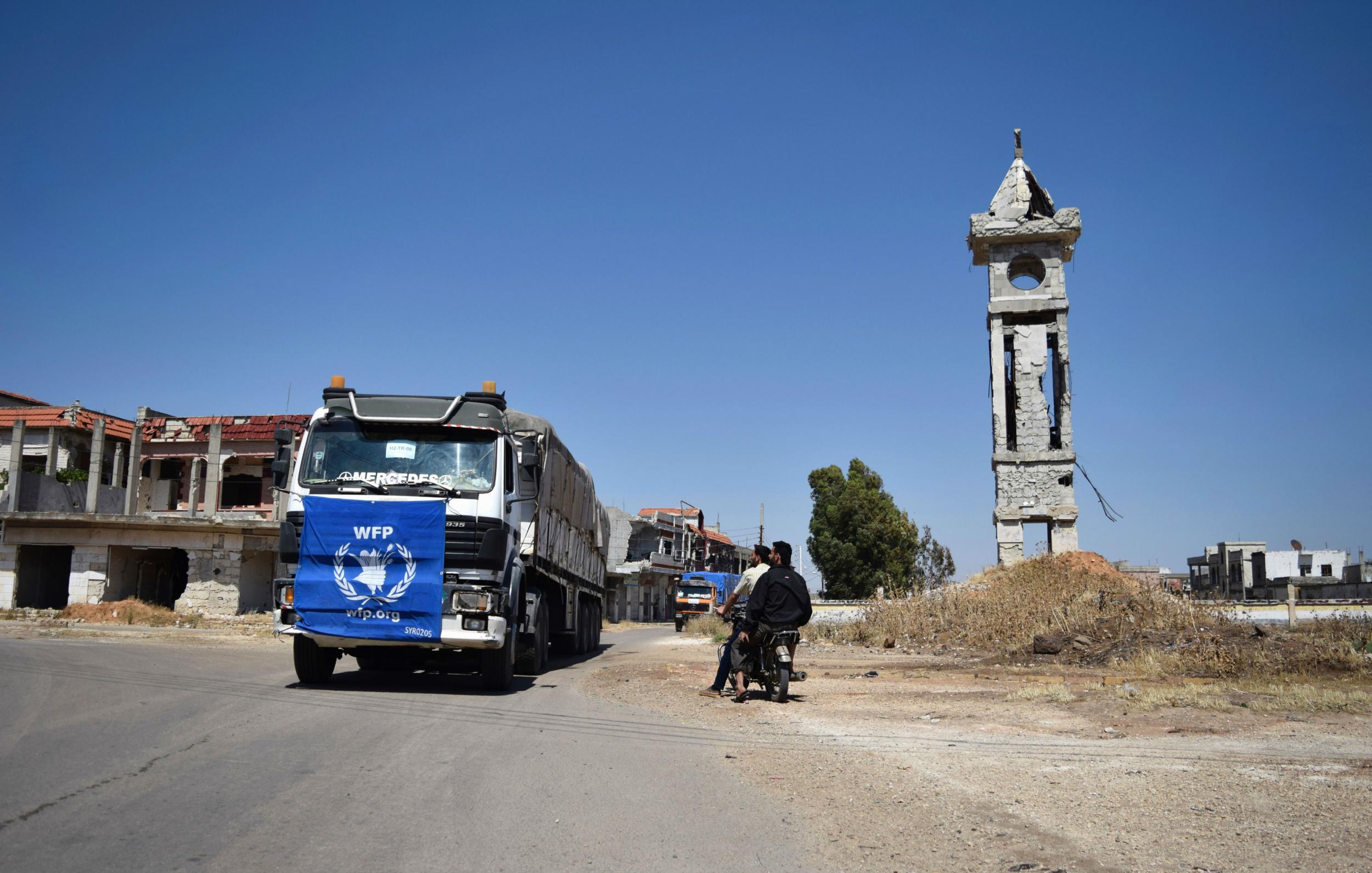United Nations aid programmes that rely on entities tied to President Bashar al-Assad under the microscope
Syria Campaign has accused UN of giving Damascus control over distribution

The United Nations has come under pressure to explain why so much of its aid to Syria is being funneled through organizations and individuals close to President Bashar al-Assad, sometimes in apparent conflict with European Union and United States sanctions.
Tens of millions of dollars have been awarded to assorted charities and businessmen with links to the President since the start of the civil war, an analysis by The Guardian newspaper shows.
Beneficiaries of UN aid have included charities set up by the President’s wife, Asma al-Assad, and another by his closest associate, Rami Makhlouf. This at a time when the EU and Washington have been applying strict sanctions designed to force al-Assad from power.
It is not an unfamiliar problem for the UN, which is frequently asked to provide assistance to countries which are themselves under strict sanctions regimes. Earlier this year, six UN agencies complained directly to the UN Security Council that banking sanctions imposed on North Korea, for instance, were impeding their efforts to get assistance to the population.
The world body and its various charitable arms, like the World Food Programme and Unicef, also often find themselves obliged to deal with the sovereign governments of nations even while the rest of the world is trying to isolate them, as the only means of saving lives in conflict.
“Of paramount importance is reaching as many vulnerable civilians as possible,” a spokesman said. “Our choices in Syria are limited by a highly insecure context where finding companies and partners who operate in besieged and hard to reach areas is extremely challenging.”
Yet, the scope of engagement between the UN and the entities associated with the President may dishearten many, not least those who give charitably to those agencies to help with their work. Unicef, for example, was listed as having given $267,933 to the Al-Bustan Association, owned and run by Rami Makhlouf, Syria’s wealthiest man, who is also a cousin of Assad.
It may also make awkward reading for some national governments giving large sums to UN agencies. Britain, for example, is an important donor to the World Health Organisation. It is listed as having given $5 million to support Syria’s blood bank, which is controlled by the Syria defense department.
“When faced with having to decide whether to procure goods or services from businesses that may be affiliated with the government or let civilians go without life-saving assistance, the choice is clear: our duty is to the civilians in need,” the UN told the newspaper, which also found that the world body had spent more than $9 million housing officials in the Four Seasons Hotel in Damascus. The hotel is deemed safe but is one-third owned by the Syrian tourism ministry.
Separately, there has also been concern that the bulk of UN assistance is being directed by Assad-tied entities into government-controlled areas of Syria and not to rebel areas where suffering may be greatest, for example the frequently bombarded city of Aleppo.
In June, the Syria Campaign issued a report condemning the UN for allowing the Syrian government “to direct aid from Damascus almost exclusively into its territories,” asserting that 96 percent of UN food aid delivered from inside Syria from June 2015-April 2016 (excluding October-December 2015) went to government-controlled areas.
“By choosing to prioritise cooperation with the Syrian government at all costs, the UN has enabled the distribution of billions of dollars of international aid to be directed by one side in the conflict,” the report, Taking sides: The United Nations’ loss of impartiality, independence and neutrality in Syria, said. “This has contributed to the deaths of thousands of civilians, either through starvation, malnutrition-related illness, or a lack of access to medical aid.”
Subscribe to Independent Premium to bookmark this article
Want to bookmark your favourite articles and stories to read or reference later? Start your Independent Premium subscription today.

Join our commenting forum
Join thought-provoking conversations, follow other Independent readers and see their replies